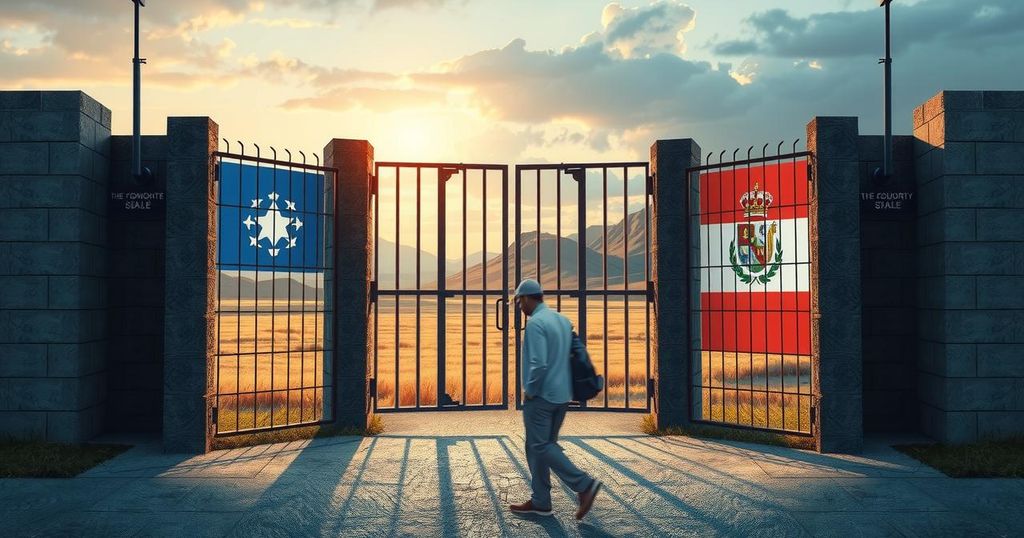President Bukele Proposes Humanitarian Prisoner Swap with Venezuela
Salvadoran President Nayib Bukele proposed a prisoner swap with Venezuelan President Nicolás Maduro, suggesting to exchange 252 Venezuelan deportees for an equal number of political prisoners detained in Venezuela. The proposal aims to address humanitarian concerns while also responding to international criticism of El Salvador’s treatment of deportees, amidst a backdrop of heightened scrutiny regarding the country’s policies.
On Sunday, Salvadoran President Nayib Bukele proposed a prisoner exchange with Venezuelan President Nicolás Maduro. Bukele suggested trading Venezuelan deportees, currently held in El Salvador, for what he deems “political prisoners” imprisoned in Venezuela. In a post on social media platform X, Bukele detailed his proposal as a humanitarian gesture, aiming to repatriate all 252 Venezuelan deportees in exchange for an equal number of political detainees in Venezuela.
In his post, Bukele outlined various individuals imprisoned in Venezuela, including family members of significant opposition figures, journalists, and activists detained during the electoral repression in the country last year. He criticized the Maduro administration for its crackdown, asserting, “The only reason they are imprisoned is for having opposed you and your electoral fraud.” He emphasized the need for dialogue between El Salvador’s foreign ministry and the Venezuelan government.
El Salvador’s international stance has garnered criticism as it continues to detain Venezuelans and Salvadorans deported under the Trump administration’s allegations of gang affiliation. Recently, an American citizen, Kilmar Abrego Garcia, was deported, leading to legal disputes regarding his return. Additionally, El Salvador’s archbishop José Luis Escobar Alas urged President Bukele not to permit the country to become an “international prison.”
Despite the surrounding controversy and criticism, Bukele defended his actions by asserting that the incarcerated individuals were part of efforts targeting gangs, specifically referencing the Tren de Aragua operating in the United States. His government has built a “mega-prison” for this purpose, known as the Terrorism Confinement Center (CECOT).
President Nayib Bukele’s proposed prisoner swap with Nicolás Maduro reflects ongoing geopolitical tensions and humanitarian concerns surrounding Venezuelan political prisoners. Bukele’s initiative, while controversial, underscores the complexities of asylum and deportation policies in the context of escalating international scrutiny of El Salvador’s treatment of its deportees. Furthermore, local and international voices continue to highlight the moral implications of Bukele’s stance on civil rights and human dignity.
Original Source: www.haltonhillstoday.ca




Post Comment